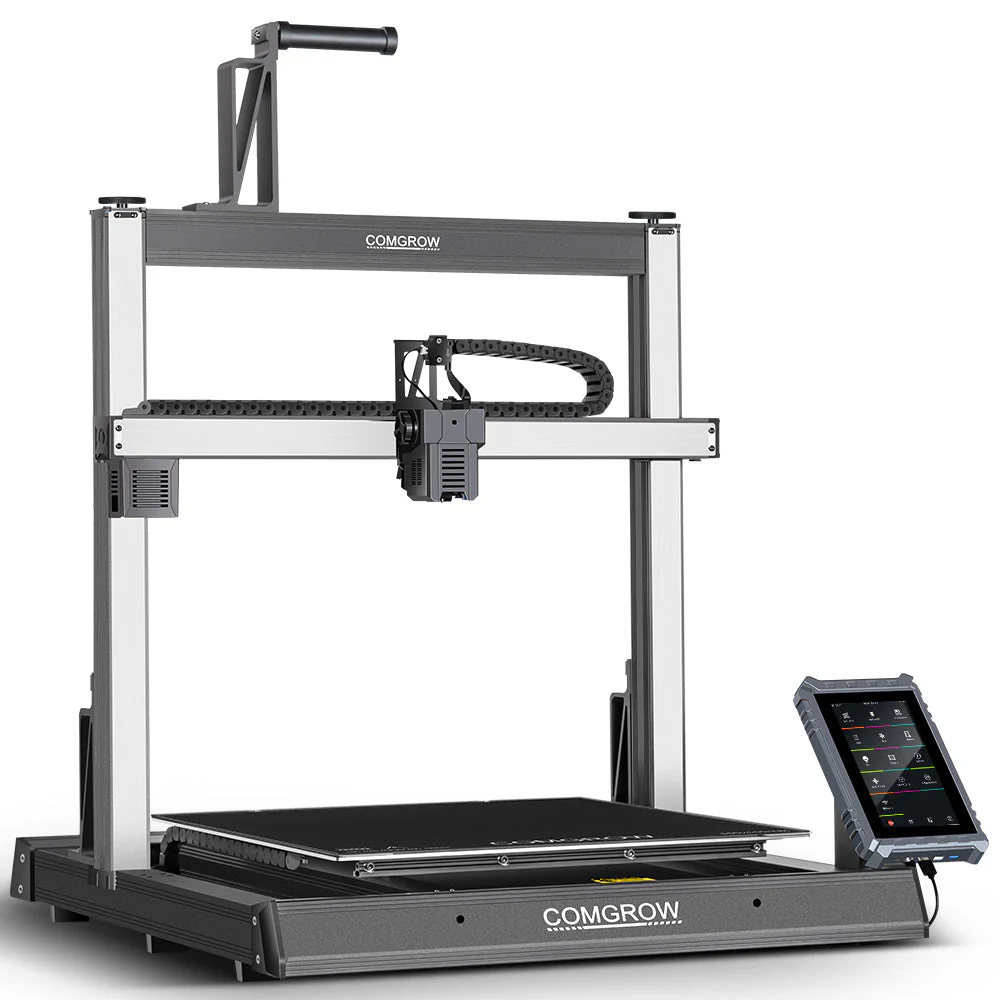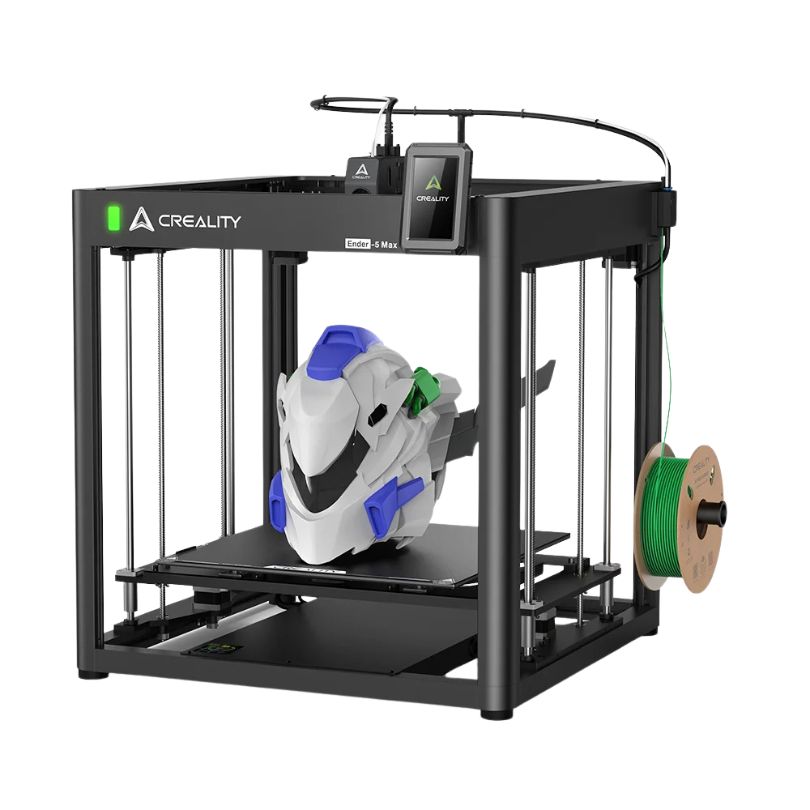Compare Comgrow T500 vs Ender 5 Max
Comparison between the best 3D printers
Choose the best 3D printer at the best price. The cheapest 3D printers are here.
Buy a 3D printer here with 3D Fila.
 |
 |
|
| Model | Comgrow T500 |
Ender 5 Max |
| Printing Material | Filament | Filament |
| Buy Filament for Sovol Comgrow T500 | Buy Filament forCreality Ender 5 Max | |
| Estimated price | $799,00 | $769,00 |
| Manufacturer | Sovol | Creality |
| Release Year | 2024 | 2025 |
| Print Volume [mm] | 500x500x500 | 400x400x400 |
| Printer Size [mm] | 817x810x962 | 649x721x850 |
| Weight [kg] | 39 | 25,9 |
| Power Loss Recovery | YES | YES |
| Enclosed printer | NO | NO |
| Bed Leveling | Automatic | Automatic |
| Filament End Sensor | YES | YES |
| Bed type | Heated | Heated |
| Power supply system | Direct Drive | Direct Drive |
| Standard nozzle | 0,4 | 0,4 |
| Maximum Nozzle Temperature [°C] | 300 | 300 |
| Maximum Bed Temperature [°C] | 80 | 100 |
| Maximum printing speed [mm/s] | 500 | 700 |
| Filament holder | YES | YES |
| Camera for supervision | NO | NO |
| Recommended filaments | PLA, PETG, Fibra de Carbono, TPU | Hyper PLA/PLA/PETG/TPU95A/ABS/ASA/PLA-CF/PA/PLA-Silk |
| Recommended slicers | Creality Print, Cura 5.0 ou superior, Prusa Slicer, Orca | Creality Print 5.1 |
| Maximum Resolution [mm] | 0,1 | 0,1 |
| Processor | ||
| Display | 7'' IPS touchscreen, 60Hz | Touchscreen 4,3'' |
| Power Supply | 500 W | 1250 W |
| Connectivity | USB, Wifi | |
| Operating systems | Windows | |
| Date of registration in the system | 2024-07-18 | 2025-02-18 |
| Release date | 2024 | 2025 |
| Extra features | The Sovol Comgrow T500 stands out for its large print volume of 500x500x500 mm, ideal for large-scale projects. It has a direct extruder with a gear ratio of 6.5:1, speeds of up to 200 mm/s, and high-performance motors. The 7" touchscreen with Klipper software makes navigation easy. The 49-point automatic leveling ensures a perfect first layer. It also has a full metal hotend at 300°C, linear rails on all axes, and WiFi connectivity. | The Ender 5 Max by Creality features a 400 x 400 x 400 mm build volume, a rigid aluminum frame, and 36-point auto bed leveling. With speeds up to 700 mm/s, it boasts a hardened dual-gear extruder and a 1000W heated bed, reaching 80°C in just 200 seconds. It supports remote management via WLAN, a tri-color status indicator, and quiet operation, making it ideal for high-precision, high-productivity 3D printing. |
| Support for multiple colors and materials (AMS and CFS) | NO | NO |
Notes * |
||
| Cost-benefit | 7 / 10 | 7 / 10 |
| Hardware | 3.6 / 10 | 5 / 10 |
| Tela | . | . |
| Print volume | 5 / 10 | 4 / 10 |
| Performance | 4 / 10 | 6 / 10 |
Conclusion |
| In comparing the Comgrow T500 and the Ender 5 Max, both 3D printers offer unique advantages that cater to different needs and preferences in the 3D printing community. The Comgrow T500 is appealing for its larger print volume and advanced features such as a 7-inch IPS touchscreen, extensive automatic bed leveling points, and a full metal hotend that operates at a maximum temperature of 300°C. This makes it an excellent choice for users who prioritize building larger models and require more precision in their first layer adhesion. Its strong direct extruder and high-performance motors could also benefit those looking to print more demanding materials. On the other hand, the Ender 5 Max shines with its faster maximum printing speed and robust build quality. It features a heated bed that heats up rapidly and a dual-gear extruder, which enhances its performance with a variety of filament types. The printer's rigid aluminum frame contributes to its stability, making it less prone to vibrations during operation—ideal for those focused on high-quality prints. While both printers support automatic bed leveling and various filament types, the Ender 5 Max offers a slight edge in build quality, printing speed, and ease of use with its compact touchscreen interface. However, if print volume is a critical factor, the Comgrow T500 provides a more suitable option. Ultimately, the choice between these two models may come down to individual needs—whether one prioritizes larger print capacity (Comgrow T500) or faster, potentially higher-quality prints in a compact design (Ender 5 Max). Each printer offers a solid cost-benefit ratio, making either choice a viable investment for 3D printing enthusiasts. |

